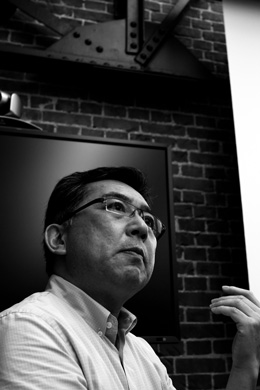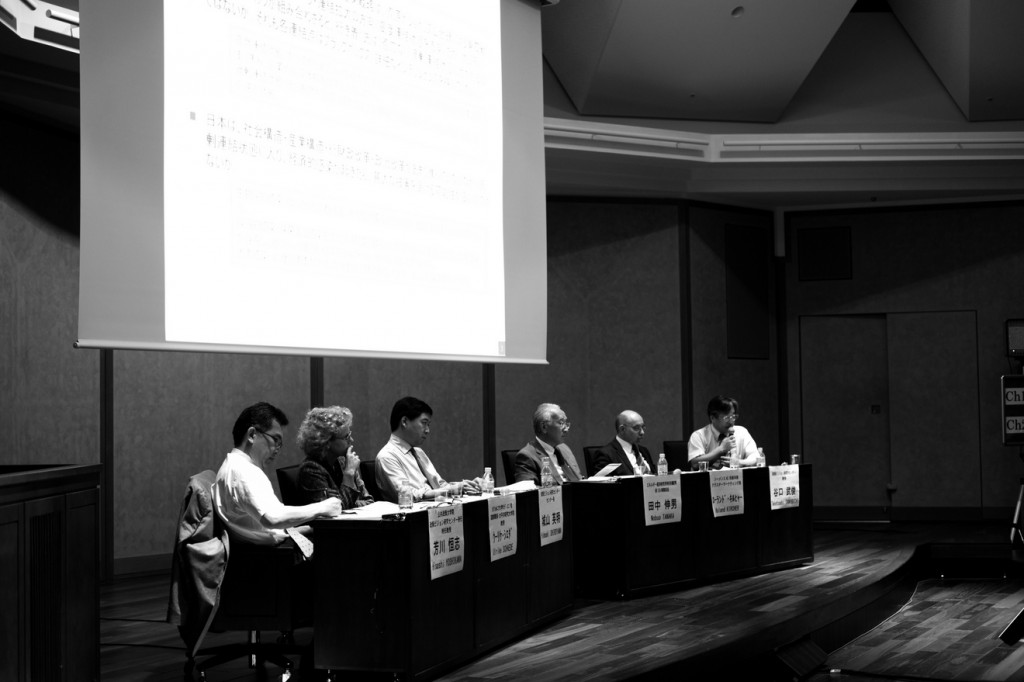Requirements for Working on the Global Stage
Hisashi Yoshikawa / Professor, Policy Alternatives Research Institute, the University of Tokyo

Q:Professor Yoshikawa, you have been globally active through projects such as rural electrification in Myanmar. Tell us how you achieved this success.
Yoshikawa: I joined the Ministry of International Trade and Industry (now the Ministry of Economy, Trade, and Industry) after graduating from the Faculty of Law at the University of Tokyo. I was initially assigned to the Nuclear Industry Division at the Agency for Natural Resources and Energy in 1981 and dealt with nuclear fuel cycle affairs other than power generation. I learned the basic rules of being an administrative official there. Five years later, I was given the opportunity to study in the United States for two years. Upon my return, I worked for two more years in the Ministry of International Trade and Industry before I was loaned to the Ministry of Foreign Affairs from 1990 to 1993 as an economic secretary at the Japanese embassy in Tehran. From 1998 to 2001, I worked with JETRO in New York. I was then involved in the WTO Doha Round until 2006, when I started working for the International Energy Agency (IEA) and the OECD secretariat in Paris. I worked for IEA and OECD for five years before returning to Tokyo.
Q: I understand you applied for the opening at IEA; was it always your intention to work abroad?
Yoshikawa: I took an examination in Paris at the beginning of 2006. I was appointed Head of Country Studies Division at IEA, and then moved to OECD just under two years later. In 2010 I returned to IEA from my position as Deputy Director at OECD. Certainly, as a young man, I had entered public office with the hope of working on the international stage, but I did not have any of these specific positions in mind. If I had known beforehand, I would have prepared myself better when I was young. For example, I would have studied French and worked as an intern at an international agency. I think it would have been helpful in improving my credentials.

National Interest and Contribution: What Value Can You Add?
Q:You have been active in various global sectors; which of your aptitudes have made this possible
Yoshikawa: I was prepared to believe that this was the only way of life for me. It is extremely important to strike a proper balance between how you can contribute at a conference—in other words, what value you can add—and how to protect national interests in international negotiations. Many Japanese officials that attend international conferences are highly capable note-takers with clear minds and proper awareness of the issues at hand. However, it is crucial to go beyond taking notes and persuade other parties, or at the very least make them take notes instead and report Japan’s views back to their home country. Today, Japan no longer enjoys the type of power or influence that once effortlessly attracted world attention; hence, individual strength and a change in mindset are fundamental. The ability to speak a universal language and apply global methods in debate is essential; that is, to participate in discussion in English that is evidence-based with proper methodology. An academic background is even more desirable. Therefore, it is vital have the ability to deliver concise and adequate argument in an international language and to nurture people with such ability.
Persuasive, Concise, Unambiguous Communication Skills
Q:So this is not merely a language problem? Are there also issues with data and logic?
Yoshikawa: Exactly. It’s not even a problem of debating skills. Even if you are no orator, you still have to successfully persuade people in broken English, which is fairly difficult. Hence, I want students gain a sound grasp of fundamentals. I often tell GSDM students that they must set research objectives based on interaction with society and what specific use the research will have. Even for science students, considering links to society can be viewed as a requirement for global leaders. Given my experience of working with truly talented people from Japan and elsewhere at WTO negotiations, OECD and IEA, I must admit that it may be difficult for us to develop such people at GSDM, simply because they are so exceptionally gifted. However, we can at least convey the basis for their thoughts and actions and their mindsets, and I think this is what’s really important.
